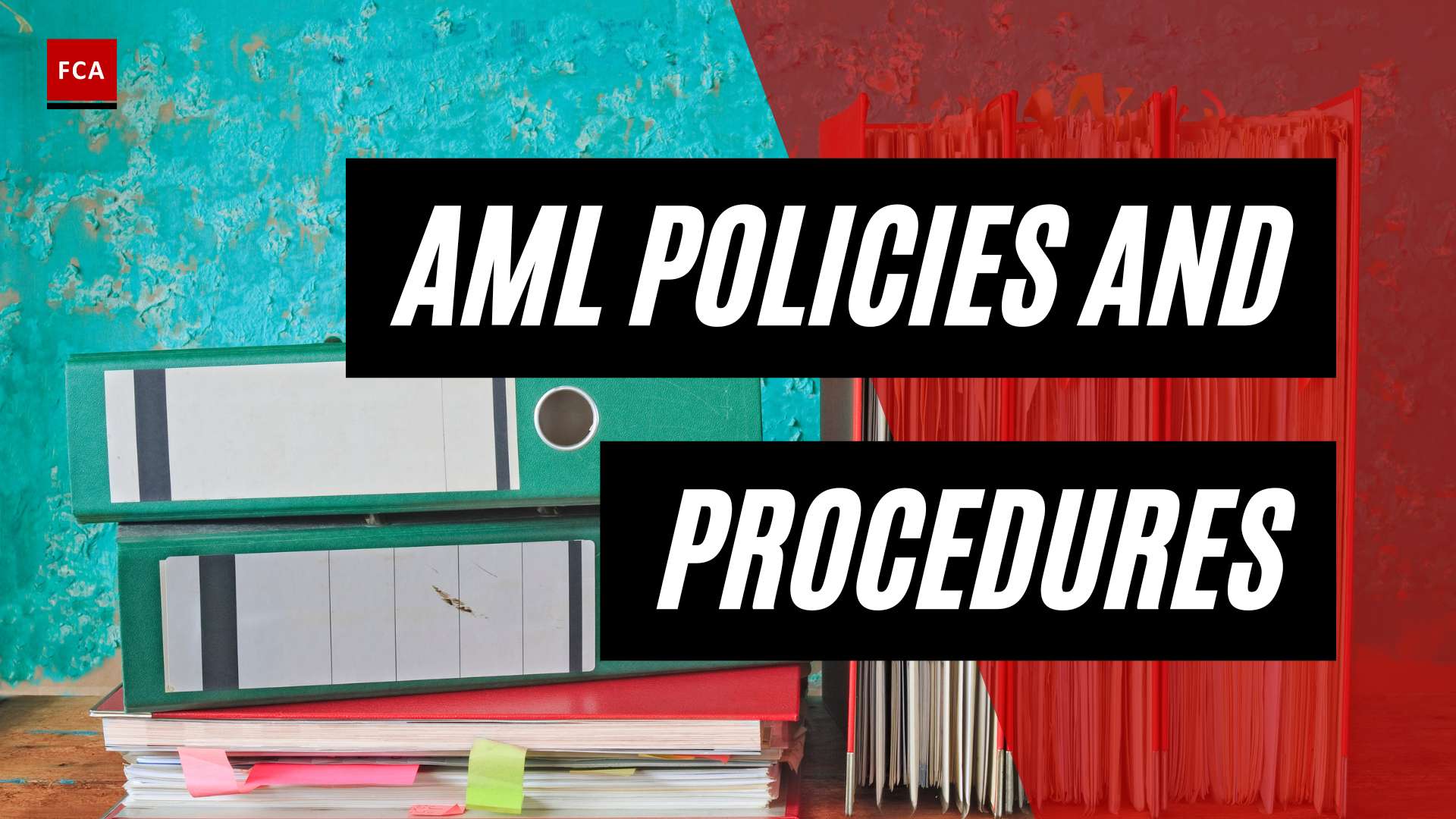Understanding AML Regulations for E-Commerce
Ensuring compliance with Anti-Money Laundering (AML) regulations is crucial for online businesses operating in the e-commerce landscape. Failure to comply with these regulations can have severe consequences, both financially and legally. To navigate the complexities of AML compliance, online businesses can leverage AML compliance software to streamline their processes and mitigate compliance risks.
Importance of AML Compliance in Online Businesses
Complying with AML regulations is of paramount importance for online businesses. AML regulations are designed to prevent money laundering, terrorist financing, and other illicit activities by identifying and reporting suspicious transactions. By adhering to these regulations, online businesses contribute to maintaining the integrity of the financial system and safeguarding their operations from being exploited for unlawful purposes.
Non-compliance with AML regulations can result in severe consequences for online businesses. The reputational damage alone can lead to a loss of trust from customers and business partners, affecting the long-term sustainability of the online business. Additionally, monetary penalties, legal actions, and potential loss of business licenses are among the potential repercussions (Financial Crime Academy). Penalties for non-compliance can be substantial, with fines reaching millions of dollars for businesses that fail to adhere to the required standards (Financial Crime Academy).
Consequences of Non-Compliance with AML Regulations
Non-compliance with AML regulations can have far-reaching consequences for online businesses. Reputational damage, loss of business opportunities, financial penalties, and legal actions are just a few examples of the potential fallout. The negative impact on customer trust can be particularly damaging, as it may lead to a significant decline in customer retention and acquisition.
To avoid these consequences, online businesses must prioritize AML compliance. Implementing robust AML compliance measures and staying up to date with the evolving regulatory landscape is crucial. By doing so, online businesses demonstrate their commitment to ethical practices, enhance their reputation, and protect themselves from potential liability.
Role of AML Compliance Software in Online Businesses
AML compliance software plays a pivotal role in helping online businesses navigate the complexities of AML regulations. These software solutions streamline AML processes, automate transaction monitoring, and generate reports for regulatory authorities. By leveraging technology, online businesses can enhance their AML practices, improve efficiency, and reduce the risk of non-compliance.
Sophisticated AML compliance software solutions offer features such as identity verification, risk assessment, transaction monitoring, sanctions screening, and suspicious activity reporting. These capabilities enable online businesses to effectively detect and prevent money laundering and other illicit activities. By customizing the software to meet their specific needs, online businesses can efficiently manage their AML compliance obligations while scaling their operations.
Implementing AML compliance software not only helps online businesses avoid fines, penalties, and reputational damage but also demonstrates their commitment to AML compliance. By embracing technology, online businesses can stay ahead of evolving threats, meet regulatory requirements, and contribute to the integrity and transparency of the global financial system (LinkedIn).
Key Considerations for AML Compliance in E-Commerce
To ensure compliance with Anti-Money Laundering (AML) regulations in the context of e-commerce, online businesses must take into account several key considerations. These considerations include customer due diligence (CDD), transaction monitoring and reporting, and risk assessment with enhanced due diligence (EDD).
Customer Due Diligence (CDD) in E-Commerce
Customer due diligence is a crucial step in AML compliance for e-commerce businesses. It involves analyzing information from various sources, such as customer-provided data, sanctions lists, and public/private data, to verify identities and assess risk profiles. By conducting CDD, businesses can identify and verify their customers, ensuring that they are dealing with legitimate individuals or entities.
Financial institutions, including banks, are required to conduct CDD on customers applying for loans, opening remittance accounts, or bank accounts, as outlined in the Financial Action Task Force’s (FATF) 40 Recommendations document. The level of CDD should be tailored to the risk level of each customer, following a risk-based approach. This includes assessing the business-customer relationship and customer risk profile to prevent fraudulent activities like identity fraud. In the United States, financial institutions must adhere to the FinCEN Customer Due Diligence Rule, which establishes policies related to customer due diligence (Onfido).
To streamline the CDD process, e-commerce businesses can leverage AML compliance software. This technology automates identity verification and risk assessment procedures, ensuring efficient and accurate customer due diligence. By implementing robust CDD measures, businesses can mitigate the risk of facilitating money laundering or other illicit activities.
Transaction Monitoring and Reporting
Transaction monitoring and reporting are vital components of AML compliance in e-commerce. Financial institutions and online businesses must carry out regular checks on their customers’ financial transactions to meet AML obligations and prevent financial crimes (Sanction Scanner). Monitoring transactions allows businesses to identify suspicious patterns or activities that may indicate money laundering or other illicit behavior.
AML regulations require businesses to report suspicious transactions to the appropriate authorities. By promptly reporting suspicious activities, e-commerce businesses contribute to the overall efforts of combating money laundering and terrorist financing. Effective transaction monitoring systems and robust reporting mechanisms are crucial for ensuring compliance and preventing financial crimes.
Risk Assessment and Enhanced Due Diligence (EDD)
Risk assessment is an essential aspect of AML compliance in e-commerce. It involves evaluating the level of risk associated with different customers and transactions. By conducting risk assessments, businesses can identify high-risk customers and transactions that require enhanced due diligence (EDD).
EDD involves conducting additional checks and gathering more comprehensive information on high-risk customers. This may include verifying the source of funds or conducting more thorough background checks. EDD measures provide businesses with a deeper understanding of their customers’ activities, allowing them to identify and mitigate potential risks.
To enhance risk assessment and EDD processes, businesses can leverage innovative technologies. These technologies, such as artificial intelligence and machine learning, can analyze vast amounts of data and identify patterns that indicate potential money laundering or other illicit activities. By embracing technology, e-commerce businesses can strengthen their AML compliance efforts and contribute to a safer financial environment.
By considering these key aspects, e-commerce businesses can establish effective AML compliance measures. By implementing robust customer due diligence processes, conducting thorough transaction monitoring and reporting, and conducting risk assessments with enhanced due diligence, businesses can minimize the risk of facilitating financial crimes and ensure compliance with AML regulations.
AML Compliance in the UAE for Online Businesses
To combat financial crimes and ensure the integrity of the financial system, the United Arab Emirates (UAE) has established strict Anti-Money Laundering (AML) regulations. These regulations are particularly relevant for online businesses operating in the UAE, given the rapid growth of e-commerce and the potential risks associated with digital transactions.
The UAE’s Strict AML Regulations
The UAE Central Bank has issued comprehensive AML regulations, underscoring the importance of regulatory adherence in the region (Tookitaki). These regulations aim to prevent money laundering and the financing of terrorism by imposing stringent compliance standards on businesses. By implementing robust AML measures, online businesses can contribute to maintaining the integrity of the financial system and safeguarding against illicit activities.
Failure to comply with the AML regulations in the UAE can have severe consequences for online businesses. Penalties for non-compliance may include hefty fines, legal repercussions, and reputational damage. The reputational impact of non-compliance can be particularly detrimental, as it can erode customer trust and damage business relationships both within and outside the UAE (Tookitaki).
The Impact of AML Compliance on Business Reputation and Customer Trust in the UAE
Maintaining AML compliance is vital for online businesses operating in the UAE. Compliance not only helps businesses avoid regulatory penalties but also plays a crucial role in preserving their reputation and building trust with customers. Implementing robust AML compliance measures enhances customer trust and credibility, leading to increased customer loyalty and long-term success in the market (Tookitaki).
By demonstrating a commitment to AML compliance, online businesses can differentiate themselves from non-compliant entities and attract customers who prioritize security and reliability. Customers are increasingly aware of the risks associated with financial crimes, and they value businesses that prioritize compliance and take proactive steps to protect their interests.
To maintain AML compliance in the UAE, online businesses should stay updated on the latest regulatory requirements, implement robust Know Your Customer (KYC) procedures, continuously monitor transactions for suspicious activities, and conduct enhanced due diligence (EDD) when necessary. By adhering to these regulations and deploying effective AML compliance software, online businesses can mitigate risks, protect their reputation, and foster a secure and trustworthy environment for their customers.
In the next section, we will explore the role of technology in streamlining AML compliance processes, including innovative technologies that can enhance effectiveness and efficiency in combating money laundering activities.
Leveraging Technology for Streamlining AML Compliance
In the ever-evolving landscape of Anti-Money Laundering (AML) compliance, technology plays a pivotal role in revolutionizing processes and helping online businesses meet regulatory requirements. By leveraging innovative technologies, businesses can streamline AML compliance, enhance efficiency, and safeguard the integrity of the global financial system.
Role of Technology in AML Compliance Processes
Technology offers innovative solutions to address the challenges posed by sophisticated money laundering techniques and the increasing volume of online transactions. Advanced data analytics, automation, blockchain, artificial intelligence (AI), and collaborative platforms are empowering organizations to combat financial crime efficiently and accurately.
With the help of technology, businesses can:
-
Enhance Due Diligence Processes: Technology enables businesses to conduct robust customer due diligence (CDD) in e-commerce, ensuring compliance with Know Your Customer (KYC) requirements. This includes verifying customer identities, assessing risk levels, and conducting ongoing monitoring to detect suspicious activities (kyc for e-commerce businesses).
-
Automate Transaction Monitoring: AML compliance software and technology-driven systems enable businesses to efficiently monitor transactions in real-time, detect unusual patterns, and generate alerts for further investigation. This helps ensure that suspicious activities are promptly identified and reported.
-
Manage Risk Effectively: Technology facilitates risk assessment by analyzing vast amounts of data and identifying potential risks associated with customers, transactions, and jurisdictions. Enhanced due diligence (EDD) measures can be implemented for high-risk customers or cross-border transactions, ensuring compliance with AML regulations.
Innovative Technologies for Effective AML Compliance
The integration of innovative technologies in AML compliance processes offers numerous benefits to online businesses. Some of the key technologies being utilized include:
-
Artificial Intelligence (AI): AI-powered systems can analyze large datasets, detect suspicious patterns, and improve accuracy in identifying potential money laundering activities. By continuously learning from new data, AI can adapt to evolving threats and enhance the effectiveness of AML compliance (LinkedIn).
-
Blockchain: The decentralized nature of blockchain technology provides transparency and immutability, making it a valuable tool for AML compliance. Blockchain can enhance the traceability of transactions, facilitate secure identity verification, and streamline the sharing of information among financial institutions, improving the effectiveness of AML efforts.
-
Advanced Data Analytics: By leveraging advanced data analytics techniques, businesses can gain valuable insights from vast amounts of structured and unstructured data. This enables them to detect and investigate suspicious activities more effectively, identify emerging risks, and improve overall risk management.
Embracing Technology for a Safer Financial Future
Embracing technology is essential for online businesses to stay ahead of evolving threats, meet regulatory requirements, and foster integrity, transparency, and trust in financial markets worldwide. Continuous innovation and collaboration in the implementation of technology-driven AML frameworks are crucial for upholding the highest standards of integrity and ensuring a safer, more resilient financial future (LinkedIn).
By leveraging innovative technologies, businesses can drive meaningful change in AML compliance processes, enhancing efficiency, security, and regulatory compliance in the digital era. The transformative power of technology enables businesses to navigate the complexities of AML regulations, protect their digital transactions, and contribute to a safer financial ecosystem.








